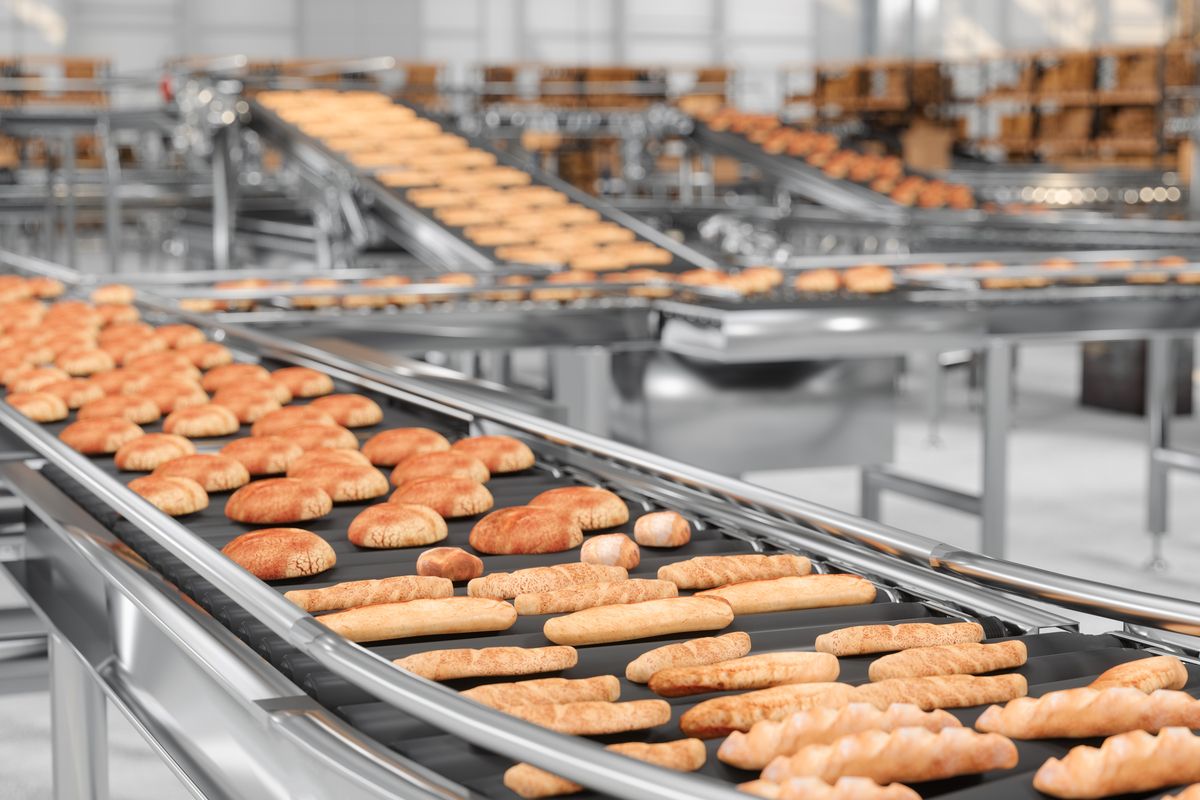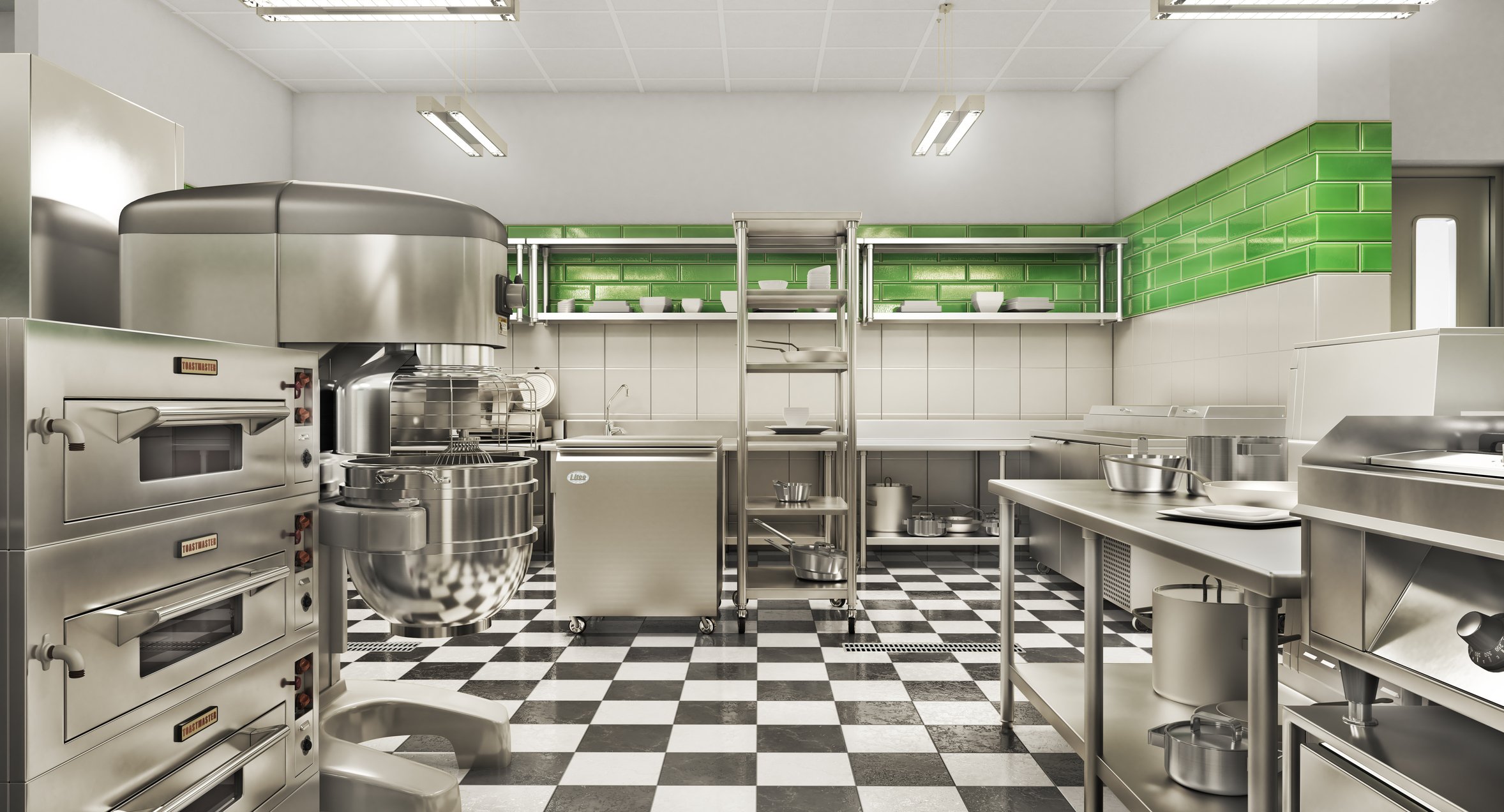If you thought food-service suppliers would suffer from the restaurant industry's challenging outlook, you're only half right. Middleby (MIDD 2.21%), a leading manufacturer and distributor of cooking, warming and preparation equipment to restaurants, may escape the worst of restaurants' grim tidings, since its products help restaurants considerably cut their costs.
Why selling ovens is a great business
Middleby's key customers are restaurant operators, who are facing huge cost pressure in terms of labor and utilities. Middleby's kitchen equipment emphasizes fast, automated cooking, which means restaurants require fewer employees in the kitchen.
Middleby also boasts of more than 300 Energy Star-approved products, the most of any manufacturer in the cooking and warming segment. Buyers tend to rely on the Energy Star label, an energy-efficiency endorsement from the U.S. EPA.
As a result, customers don't mind paying more for Middleby's products, because they know its equipment can help them save money on both labor and energy costs.
Superior profitability relative to peers
Given the attractiveness of the kitchen equipment business, it is no surprise that Middleby is not alone. Its competitors include Illinois Tool Works (ITW 3.42%) and Manitowoc (NYSE: MTW).
Illinois Tool Works' food equipment business accounts for only 11% of its 2012 revenues. While this percentage seems small, the $1.7 billion revenue contribution from Illinois Tool Works' food equipment business is comparable to the $1 billion in sales that Middleby generated in the same year. On the other hand, the food service segment accounts for 38% of Manitowoc's revenues and 61% of its operating earnings, with crane operations contributing the rest.
The results speak for themselves. Middleby has maintained gross profit margins superior to its peers, within a narrow range of 37%-40% for the past decade. This is a strong indication of Middleby's pricing power.
Innovative new products make up for a long replacement cycle
Every company loves to sell consumables -- like razor blades, which consumers must replace within weeks of their purchase. But food service equipment typically lasts much longer -- eight years on average. Even with a large installed base of more than 900,000 establishments in the U.S., it makes little business sense for Middleby to rely solely on sales from the replacement of existing equipment.
So in 2012 and 2013, Middleby introduced close to 30 new products, such as waterless steamers and electric pizza ovens. The success of Middleby's innovation efforts is reflected in its sales mix. It generates more than one-fifth of its revenues from new products rolled out in the past three years.
Similarly, Illinois Tool Works and Manitowoc see value in innovation.
New products introduced in the past five years accounted for more than half of Manitowoc's revenues, with management targeting to grow this percentage to 80% in the future. In the food service segment, only 55% of its sales come from the replacement of existing equipment, with new products contributing the remaining revenues. Innovative new products from Manitowoc include its Merrychef eikon e4 accelerated cooking oven, which can cook food up to 15 times faster than conventional ovens.
Another indicator of innovation success, apart from new product sales, is the number of patents a company files. Illinois Tool Works issued more than 1,200 patents in 2012 -- an indication of amount of R&D it has committed to. Although there is no clear indication of how many of these thousand-odd patents relate specifically to its food equipment business, investors should not have doubts about innovation efforts in that segment. As just one example, its energy-saving innovations have led its food equipment business to be named Energy Star Partner of the Year by the EPA for four consecutive years since 2008.
Another example is Illinois Tool Works' commercial refrigeration business, Traulsen, which developed a new method of using bare-tube coils to replace traditional condenser coils in its compressors. Less dirt and dust tend to accumulate on the smaller surface areas of bare-tube coils, extending the useful lives of its compressors.
The whole less than the sum of its parts
Middleby is valued at a significant premium to its peers, with a forward P/E of 24. Illinois Tool Works and Manitowoc are valued by the market at 18 and 13 times forward P/E instead. With all three companies operating in the attractive food-service equipment business and being highly committed to product innovation, the conglomerate discount effect is the key reason for the varied valuations.
The market routinely assigns higher valuations to companies like Middleby, with a single, focused business. Multi-business companies like Illinois Tool Works and Manitowoc are penalized for their lack of focus with lower valuations.
Conclusion
I like Middleby for its strong pricing power and commitment to innovation. Middleby represents the best listed proxy for restaurants' increased focus and investments in cost saving technologies. In contrast, its peers Manitowoc and Illinois Tool Works have significant non-food equipment operations.








